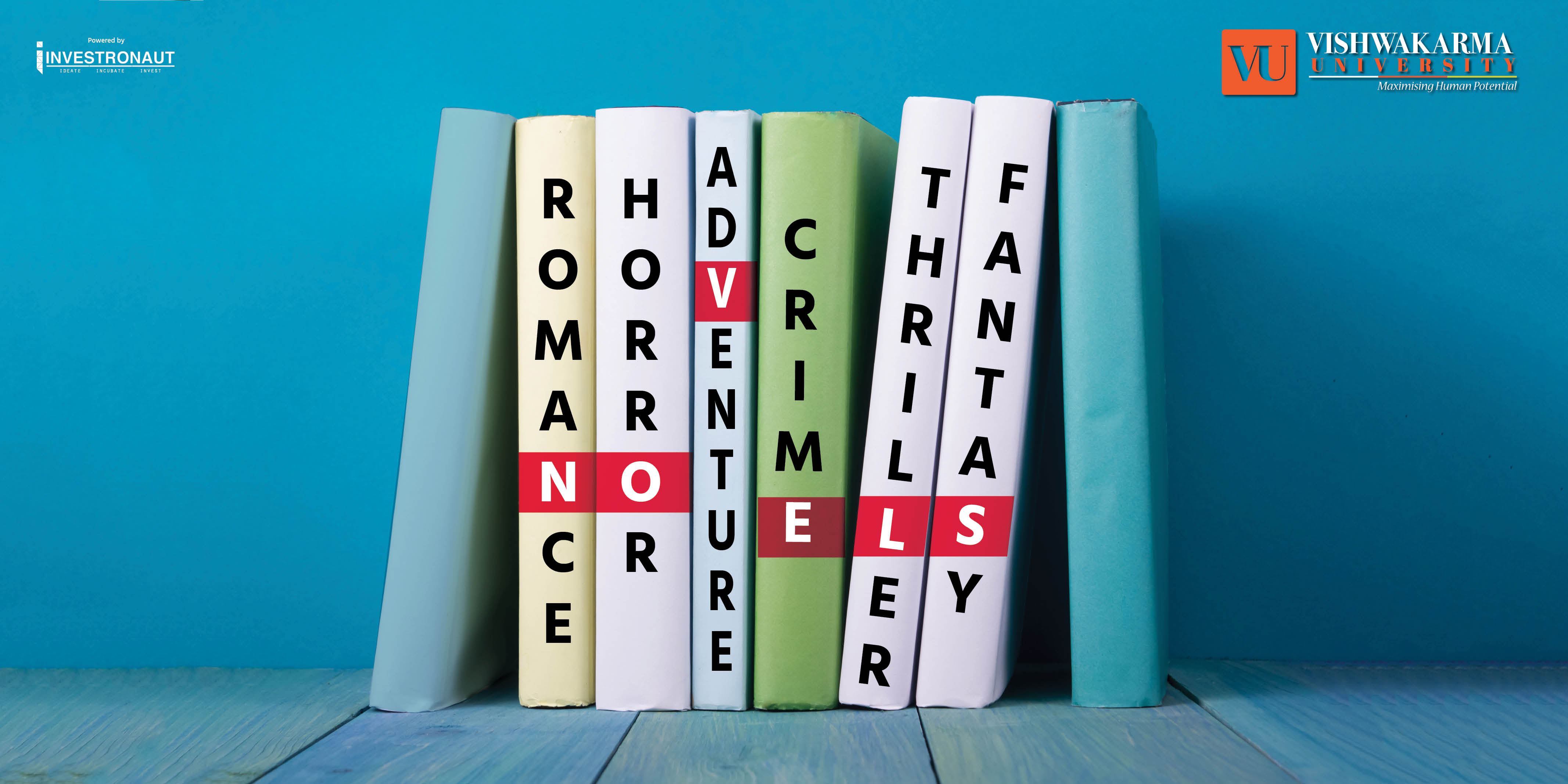
Last year as the news of Chetan Bhagat’s first novel “Five Point Someone” to be included in Delhi University’s syllabus broke out, social media was flooded with reactions that ranged from pearl clutching to downright ridicule. It’s not the first time genre fiction has been rebuked by dogmatic literary pandits. But despite being sneered at by critics, labelled as ‘low-brow’ by snobbish literary camps, the continued ascent of popular fiction across the world is a reaction to elitist view towards literature.
Genre fiction Vs Literary fiction
Termed ideal for a holiday read, Genre fiction is commercial in nature with the primary aim to entertain readers. So, it has a clearly defined plot, and explores realistic themes in a personal style of writing. It relies on telling than on showing. It may not always be experimental in terms of themes, language etc. However, there is a certain stigma and embarrassment attached to it by serious patrons of literature. It is often considered to be a juvenile and underdeveloped form.
Literary fiction is character driven i.e. thoughts and motivations of the character takes a centre stage while the plot is minimal. It is more experimental in terms of language, the use of narrative techniques and it does not relies on convention. It gives license to the reader to imagine a scene by minimal telling and more by the way of showing.
However these distinctions have time and again proved to be problematic, counterproductive and open ended. Daphne Du Maurier , writer of a masterpiece like Rebecca ; who was typecast as romance novelist in her life time is now a celebrated as a writer of layered complex narratives.
What if I were to read Charlotte Bronte’s Jane Eyre primarily as a romance novel, focusing on the ending when Rochester and Jane are reunited? Does the book gets demoted as Genre fiction? If not, then do we not need to dismantle such a distinction? Is the distinction between Genre and Literary fiction then still relevant? And who are the naysayers?
How did we reach here?
When Daniel Defoe’s Robinson Crusoe was published in 1719, it was viewed with suspicion and thought to be Genre fiction. It took more than a century for the novel to become literary and earn respectability. But it was not until the Modernist critique of the mass view of life expressed in the novels that the distinction of literary and genre hardened. Modernist writers in English like Virginia Woolf, James Joyce and Marcel Proust started experimenting with the stream of consciousness technique where the character’s thoughts and inner life was deeply explored. The trend hardened into a norm and anyone who did not adhere to it was labelled subservient and un-literary.
Even the post modernist movement which fractured the distinction between high and low art could not save the novel from this categorization.
The final nail in the coffin, which made genre an adjective was a clever marketing ploy by publishers. In order to market their books to a niche audience, they obsessively began to pigeonhole certain kinds of books in the category of literary fiction and declared them as pure literature. By extension that meant that only those kinds of books are artistic, important and better than other writing.
Why is it unseemly to look down upon genre fiction?
There can be as many literary tastes as there are people on this earth. Literature may serve different functions for each one of us at different times. To some exploratory narrative techniques, and fine language may be the lure to read a book. Some others may want to escape into a good story and an engaging plot, or yearn for an emotional catharsis in relatable themes. So what’s wrong with that? Why judge? Why arrogantly brush aside that need? Why not just let a book be a book?
Secondly, literature is not an elitist entity to be savored by the chosen few.
Often people who mock others for having tawdry taste are secretly members of the page 15 club. It’s good to be humble and acknowledge that fine writers as they all are, a Rushdie or Margaret Atwood or a Thomas Pynchon is not everyone’s cup of tea. So then what do we do? Wait or pick up that much needed first book that appeals to us?
I am by no means proposing that going by this logic one should not strive to create better literature or distinguish good from the bad. All I am saying is that we should not allow literary genres and certain literary style to govern our sense of judgement.
Literature plays a wider role in the society. To my mind it is a means to cultivate empathy, transform us and set our imagination on fire and yes to entertain us too! To this end if I choose to read a romance or fantasy or historical fiction it is entirely my prerogative. The theme of the novel can not be a yardstick to judge the quality of a book. So the next time you see someone holding a copy of Ravinder Singh, Jeffry Archer or Chetan Bhagat, think again before you pontificate.
References-
https://www.newyorker.com/books/joshua-rothman/better-way-think-genre-debate
Authored by Richa Singh, Content Writer, Investronaut



